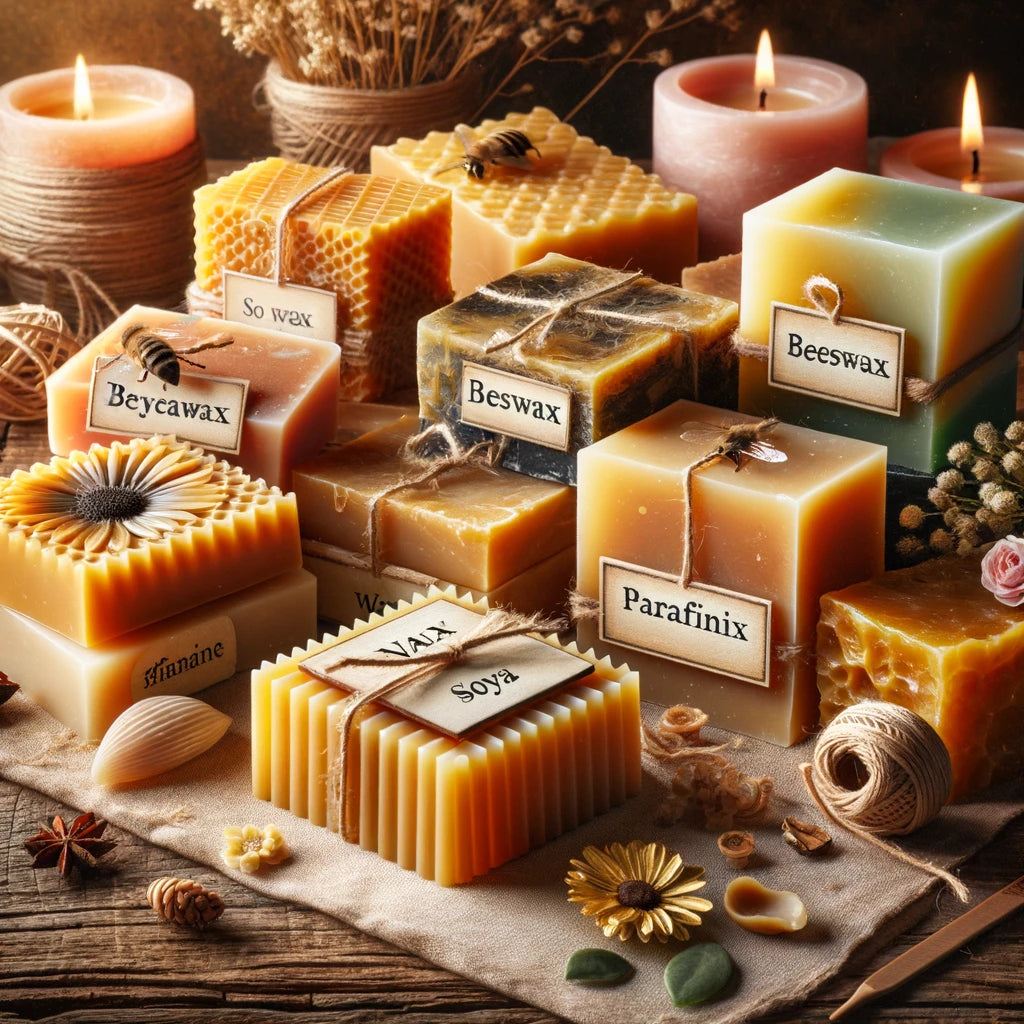Wax is a fascinating and versatile substance with a rich history of use in various applications across the globe. From the beeswax used in ancient civilizations to modern industrial and cosmetic waxes, this diverse family of compounds serves a multitude of purposes. In this blog, we'll take a closer look at some of the most common types of wax in the world and discuss which one might be considered the best, depending on specific needs and preferences.
Types of Wax:
-
Beeswax:
Beeswax is perhaps one of the most well-known natural waxes. Produced by honeybees, it has a delightful honey scent and a rich history of use in candles, cosmetics, and woodworking. Beeswax is known for its clean-burning properties and is a popular choice for those seeking natural and sustainable options.
-
Paraffin Wax:
Paraffin wax is a widely used, cost-effective, and readily available wax. It's often chosen for its excellent scent retention in candles, making it a popular choice for candle makers. However, it's a byproduct of petroleum refining, which raises environmental concerns.
-
Soy Wax:
Soy wax is a renewable and biodegradable wax derived from soybean oil. It has gained popularity for its eco-friendliness, clean burn, and ability to hold fragrances well. Soy wax is a favorite among environmentally conscious consumers.
-
Carnauba Wax:
Carnauba wax is a plant-based wax obtained from the leaves of the carnauba palm. Known for its exceptional hardness and gloss, it's commonly used in car waxes, cosmetics, and even as a coating for certain foods. It's often preferred for its natural origin.
-
Microcrystalline Wax:
Microcrystalline wax is a synthetic wax with a higher melting point than many natural waxes. It's used in various applications, including cosmetics, candles, and sealing materials. Its synthetic nature allows for specific characteristics, making it suitable for various specialized uses.
Choosing the "Best" Wax:
The choice of the "best" wax depends on the intended application and personal preferences. Here are some considerations:
-
Eco-Friendliness: If sustainability is a top priority, natural waxes like beeswax and soy wax are more environmentally friendly options compared to petroleum-derived paraffin wax.
-
Clean Burning: For clean-burning candles with minimal soot and smoke, beeswax and soy wax are excellent choices.
-
Fragrance Retention: If you want candles with a strong and long-lasting scent, paraffin wax is known for its ability to hold fragrances effectively.
-
Hardness and Durability: Carnauba wax is renowned for its hardness and gloss, making it ideal for car wax and cosmetic products that require a glossy finish.
-
Specific Application: Consider the unique properties of microcrystalline wax or other specialized waxes when they align with the specific requirements of your project.
There is no one-size-fits-all answer to which wax is the best, as it depends on the intended use and personal values. Each type of wax brings its own set of advantages and considerations. Whether you prioritize eco-friendliness, clean burning, fragrance retention, or other factors, there's a wax that's ideal for your needs. Ultimately, the world of wax is diverse and offers options to suit a wide range of applications and preferences.

